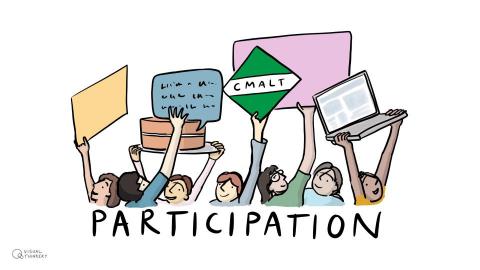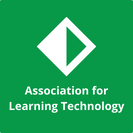
The call for proposals for the Annual Conference 2020 is still open.
We are continuing to plan for the conference both in person and online. We are reviewing the situation weekly and we expect to continue this approach until May at which time we will review further.
The deadline for the Call for Proposals for ALT’s Annual Conference 2020 is 30 April 2020.
All submissions are made via the ALT Online Submission Form
This year’s conference focuses on inclusivity as its overarching theme and our ability to respond to the complexity of our changing environment. We invite you to submit proposals in response to one of the conference themes:
- Inclusive Practice – our learners are diverse. How do we design and create inclusive student-centred learning environments to support and celebrate this diversity? What challenges and opportunities do digital environments bring? How do we ensure that we are representing our student’s voice and our evolving student demographic?
- Leadership in learning technology – what role does leadership play? For example, implementing policies and frameworks; establishing learning technology within an institution; building learning technology teams; promoting and supporting diversity; professional development of learning technologists; collaborating internally & externally.
- Digital Wellbeing – Considering the relationship between the technology we promote and the wellbeing of students and teachers; the impact of digital services on people’s mental, physical and emotional health; the ethical questions raised through the use of analytics and the safety of user data; wellbeing and resilience as digital capabilities; the challenge of delivering online learning to those who are actively reducing their use of online platforms.
- Responding to Complexity – how are we dealing with change and the growing complexity of the education sector and our institutions? How are we navigating new political and ethical considerations? What are the challenges and opportunities of unbundled education and disaggregated learning technologies?
- Wildcard: if your work doesn’t relate directly to any of the conference themes, then we encourage you to select the wildcard theme when submitting your learning technology research, practice or policy work from any sector including further and higher education, schools, vocational learning and training, lifelong learning and work-based learning.
How to submit a proposal
We are looking for session proposals that will make an innovative contribution to the conference programme and be of value to other participants.
All submissions are made via the ALT Online Submission Form.
Your proposal
You will need to select what kind of session you would like to run from the following options:
- GASTA talk (5 min, concise, punchy talk)
- Poster & GASTA talk (digital/print poster + 5 min lightning talk)
- Research or practice presentation (20 min, with min.5 minutes for Q&A)
- Reflective session (30 min, usually interactive and seeking feedback from participants)
- Workshop, panels or demonstration (1 hour, usually BYOD for participants)
You will need to include a session title, description and further supporting information. You should not submit proposals that have been published, presented or submitted elsewhere.
What we are looking for
We review all submissions to ensure that we maintain the highest quality and include the broad range of learning technology research, practice and policy of interest to our participants.
Each proposal will be reviewed by two members of the conference committee. We ask that you remove any information from your proposal that will identify you as the author, so that the review is conducted impartially. Proposals are reviewed against the following criteria:
- Does it explain how the session relates to the chosen conference theme?
- Is it clearly written (i.e. acronyms are explained, and language appropriate for an international audience and from participants from different sectors)?
- Does it state what participants will gain from the session and why they should attend?
- Does it include details of what the session is based on, such as a particular project or initiative or practice? Does it critically reflect on this and evaluate it (i.e. state how many learners/staff are involved, what feedback was collected and how transferable your experience/findings/tools are)?
- If it is a commercial proposal, we ask that it meets all the above criteria and clearly states what products are being demonstrated or discussed and acknowledges the role of the company in the session.
Increasing impact and professional recognition
If you are seeking to increase the impact of your work or looking to disseminate your work beyond the conference, we encourage you to make a submission to the Research in Learning Technology journal. The journal is a Gold Open Access journal and we do not levy any charges to ensure researchers can disseminate new work in learning technology as widely as possible.
We also invite you to consider entering the ALT Awards which are now open for entries from individuals, teams and research projects..
Is this conference for you?
We invite proposals from learning technology professionals and learners from all sectors in the UK and internationally. The Association for learning technology (ALT) represents individual and organisational members from all sectors and parts of the UK. Our membership includes practitioners, researchers and policy makers with an interest in learning technology. Our community grows more diverse as learning technology has become recognised as a fundamental part of learning, teaching and assessment.
You can read about the experience of previous participants in their own words in our blogpost round-up or post a question #altc on Twitter.
We look forward to welcoming you in September and wish you good luck with your submission!
